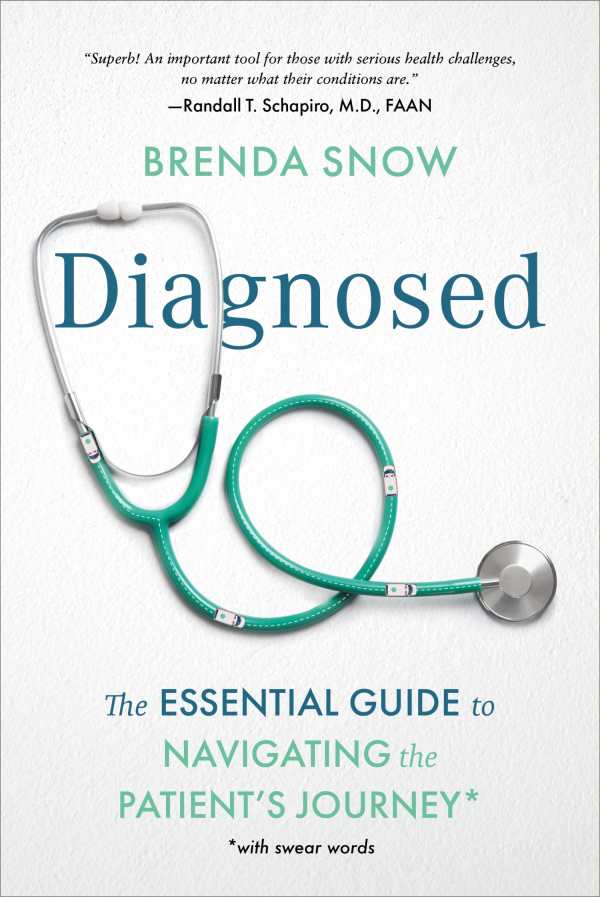Diagnosed
The Essential Guide to Navigating the Patient’s Journey
Nurturing patients and their care partners toward fulfilling, happy lives, Diagnosed is a sympathetic self-help text.
Complemented by vulnerable, humorous personal reflections, Brenda Snow’s Diagnosed is a clear-headed self-help guide aimed at empowering patients through chronic disease.
Framed by Snow’s experiences navigating a multiple sclerosis diagnosis in her late twenties, this no-nonsense guidebook covers ten stages of handling illness, including grief, endurance, and optimizing care. Inspirational and hopeful in tone, it is filled with reassuring messages. Levity is also interspersed throughout, as with the moniker “Dr. Asshole.” And the book includes tips, encouragement, and storytelling to help others prevail, as with directions to open communication and give feedback to one’s medical partners.
In addition to its encouraging material, the book also acknowledges the weight of chronic disease. For instance, various states of acute grief are said to exist before a deep sense of loss surfaces in a patient. In directing patients through such loss, the book names intentional techniques like reflection through journaling. And the chapters end with key takeaways on topics like common emotions, pitfalls, and next steps.
Organized into accessible chapters, the text approaches each patient phase using real-life scenarios and recommendations for moving beyond hardship. A scene in a Macy’s dressing room with Snow’s daughter is used to illustrate the postdiagnosis reality in raw terms, as is the confusion of prediagnosis periods, before definitive causes for suffering are identified. Anger over the life one leaves behind is also conveyed via memories such as Snow’s inability to make toast for her daughter while dealing with MS.
While much of the book emphasizes symptoms, therapies, and stories that are specific to multiple sclerosis, the mental, physical, and emotional tolls of disease all receive space, explored in terms that are applicable across a variety of medical situations. For example, in covering the endurance stage, the book says that long-term commitment to overcoming disease should focus on three areas: symptom management, proactive physical care, and emotional self-care. Also broad are the “patient perspective” boxes featuring anecdotes from others fighting chronic diseases like breast cancer, HIV, and epilepsy. Further supportive is the book’s regular emphasis on caregivers and support networks, to whom similar advice is given on managing anger, processing grief, and addressing one’s health, reinforcing caregiver roles as key to an individual’s improvement.
Diagnosed is an optimistic care guide to accompany people through the emotional experiences of chronic disease.
Reviewed by
Katy Keffer
Disclosure: This article is not an endorsement, but a review. The publisher of this book provided free copies of the book and paid a small fee to have their book reviewed by a professional reviewer. Foreword Reviews and Clarion Reviews make no guarantee that the publisher will receive a positive review. Foreword Magazine, Inc. is disclosing this in accordance with the Federal Trade Commission’s 16 CFR, Part 255.

